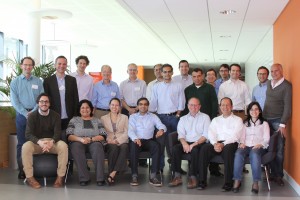Call for Papers
International Workshop on
Networks and Trade
3-4 October 2013, Leuven (Belgium)
jointly organized by: Center for Economic Studies, KU Leuven; Leuven Centre for Irish Studies, KU Leuven; Research Group Globalization, Innovation and Competition, HU Brussels; International Network for Economic Research (INFER)
Prior to this workshop, the 3rd Belgian Social and Economic Network Research Meeting will take place.
Workshop Objectives
This workshop brings together economists to discuss recent topics related to Networks and Trade. Researchers are invited to submit theoretical, empirical or methodological papers. In particular, we welcome papers related to the following topics:
- Networks in international trade or business
- Multi- or interdisciplinary approaches to network analysis
- Trade and transportation
- Game theory in networks/strategic network formation
- Discrete choice models in networks
- The impact of negative social relationships (‘signed networks’)
- Communication over networks
- Exponential random graph modeling
- Dynamic network formation models
Although this workshop is mainly aimed at economists, we welcome submissions from other fields (like sociology, biology, physics, finance, applied mathematics etc.) too. As network analysis has a multidisciplinary nature, this workshop intends to build bridges between various disciplines.
Keynote Speakers
We are happy to welcome the following internationally distinguished keynote speakers:
Prof. Thomas Chaney (University of Chicago and Toulouse School of Economics)
Prof. Sanjeev Goyal (Cambridge University).
Link to the event site

